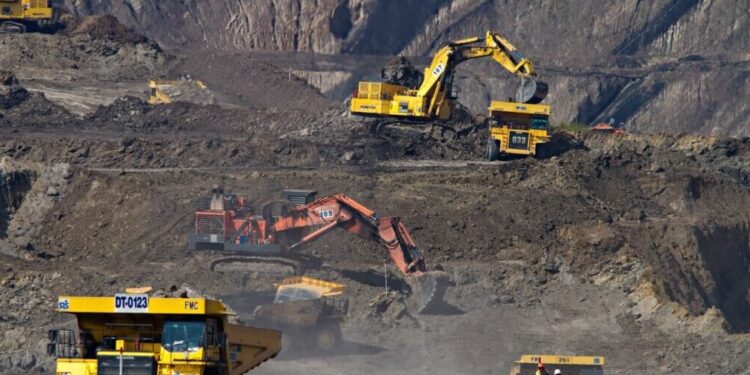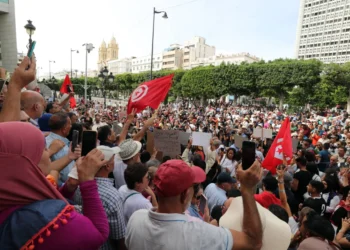Mining firms are facing growing pressure from West Africa’s Juntas.
Earlier this January, military personnel descended on a major mining operation in western Mali, using helicopters to carry out an unannounced seizure of three tonnes of gold. This bold move was executed under direct orders from Mali’s ruling military government.
The operation, targeting the Loulo-Gounkoto mining site, predominantly owned by a Canadian corporation, is the latest development in a broader conflict between Sahel-region military regimes and Western mining companies.
Since assuming power, the military-led governments of Mali, Burkina Faso, and Niger have intensified efforts to assert control over natural resources, advocating for fairer revenue-sharing agreements with foreign operators.
In mid-January, Mali’s authorities escalated their dispute with Canada-based Barrick Gold by confiscating gold from Loulo-Gounkoto, a mining complex considered among the largest globally. The Canadian firm holds an 80% stake in the operation, with Mali owning the remaining share.
A worker at the site, speaking to newsmen on condition of anonymity due to security concerns, recounted how soldiers arrived unexpectedly, taking away workers’ phones to prevent them from documenting the scene. A few discreetly captured images later surfaced, showing helicopters preparing to fly the confiscated gold to Bamako, the nation’s capital.
The haul, valued at an estimated $260 to $290 million, is a substantial sum for Mali, which relies heavily on its gold reserves to support one of the world’s poorest economies.
Malian authorities accuse Barrick Gold of owing significant unpaid taxes. Late last year, officials arrested four local employees of the company, further ramping up the pressure. Around the same time, the CEO and two employees of Australia’s Resolute Mining were detained but later released after the firm agreed to a $160 million settlement with the government.
Other companies, such as Allied Gold, B2Gold, and Robex, have also faced scrutiny and agreed to review their agreements to resolve disputes over taxes and customs duties.
Fighting for sovereignty
The Sahel’s military rulers have vowed to reclaim greater control over their nations’ natural resources, arguing that past agreements with foreign firms have unfairly benefited outside parties. Gold mining alone accounts for a quarter of Mali’s government revenue, while in Burkina Faso, the sector contributes about 14% to the national budget.
As these regimes distance themselves from traditional partners like France and regional blocs such as ECOWAS, they are exploring ways to fund their military operations and address deep-seated economic challenges.
In Niger, authorities recently took over the uranium operations of French company Orano, citing the withdrawal of its license. Niger is a key global player in uranium production, supplying nearly 5% of the world’s total.
Similarly, Burkina Faso’s government last year requisitioned 200 kilograms of gold from a Canadian-owned subsidiary, justifying the move as necessary to address national needs.
Ahamadou Mohamed Maiga, an expert on extractive industries, commended the Sahel regimes for challenging what he called exploitative agreements. He argued that these governments were merely taking steps to rectify imbalances that had long favored foreign companies.
“Which is more unjust?” asked Malian mining consultant Oumar Baba Sy. “Allowing lopsided contracts to persist or seizing resources to compel negotiations?”
Opportunities amid challenges
The military-led governments have introduced sweeping changes to mining regulations, aiming to increase their share of resource revenues.
In Mali, officials say recent renegotiations of mining contracts have unlocked over $1 billion in additional funds. Economy Minister Alousseni Sanou projected that these reforms could add nearly $950 million annually to the national budget, representing 20% of government income.
General Assimi Goita, Mali’s junta leader, recently highlighted how the additional revenues have been used to pay down national debt and fund military procurement, underlining their critical importance to the nation’s development.
However, Nina Wilen, an analyst at the Egmont Institute, noted that the rhetoric of sovereignty employed by Sahel military leaders is as much about gaining public support as it is about policy. She warned that such measures could scare off traditional investors.
Despite these concerns, Sy, the mining consultant, downplayed the risk, pointing to interest from emerging global players such as China, Russia, and Turkey. These nations are increasingly eyeing the Sahel’s resources to meet rising global demand for critical minerals.
“There’s no monopoly here,” Sy said. “If one investor pulls back, others are waiting in line.”




































